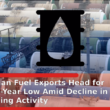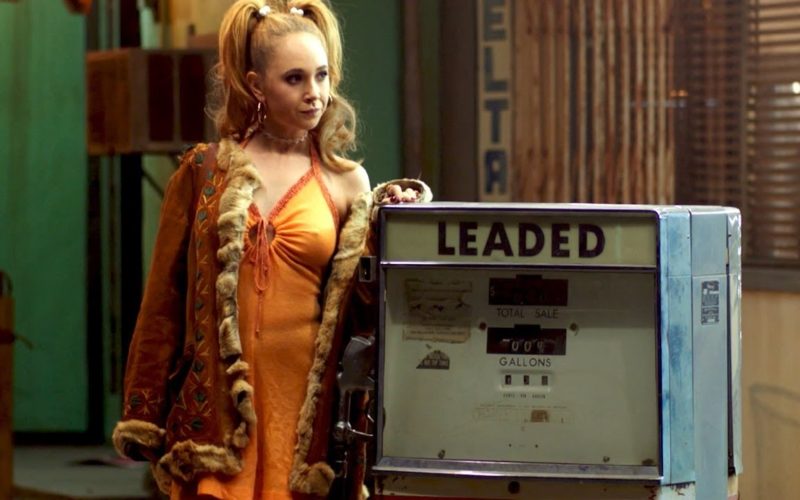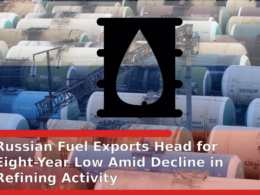Russia is waging wars to maintain a monopoly on energy supplies to Europe
Russia keeps telling the world that it’s not waging wars of aggression but merely defending its legitimate interests.
The truth is, Russia’s interest is malicious because it wants to control the European energy market. To achieve this, Russia resorts to waging wars of aggression.
There are several mutually reinforcing drivers.
First, the energy sales revenue bankrolls the ruling class whose legitimacy, as they themselves view it, depends not on the electoral outcomes but on the grandeur of Russia.
Second, the grandeur resonates with Russians domestically as well as with Putin fan club around the world, especially in Germany where the term “Putin-Versteher,” a politician who understands Putin’s grandeur and knighthood, has come into common use.
Third, they’ve got a scholarly realpolitik theory too. It’s called the Falin-Kwieciński Doctrine that was brought back from dusty binders of the 1980s. It postulates that the Russian energy resources can control Europe even if the Soviet Union agreed to stop the arms race, to curtail its nuclear arsenal, and to withdraw the military bases from Eastern Europe.
How? The key thing is to establish a market concentration and to exercise market power for natural gas that is transported through pipelines rather than oil tankers.
Valentin Falin led international relations of the Soviet Communist Party under Gorbachev and was a Soviet ambassador to West Germany under Brezhnev in the 1970s.
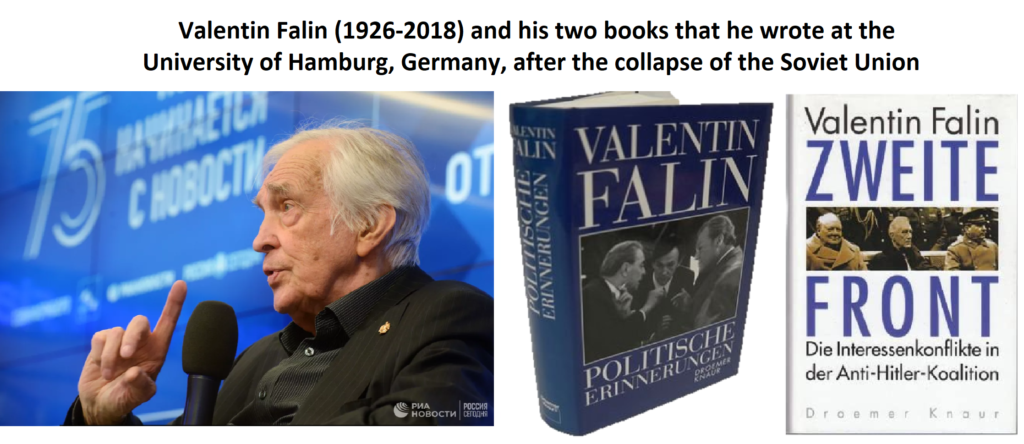
Juli Kwieciński (also spelt Yuli Kvitsinsky) was the chief arms control negotiator who sat on the other side of the table with the famous and much older Paul Nitze (1907-2004). He later served as the last Soviet ambassador to West Germany before the 1990 German unification.
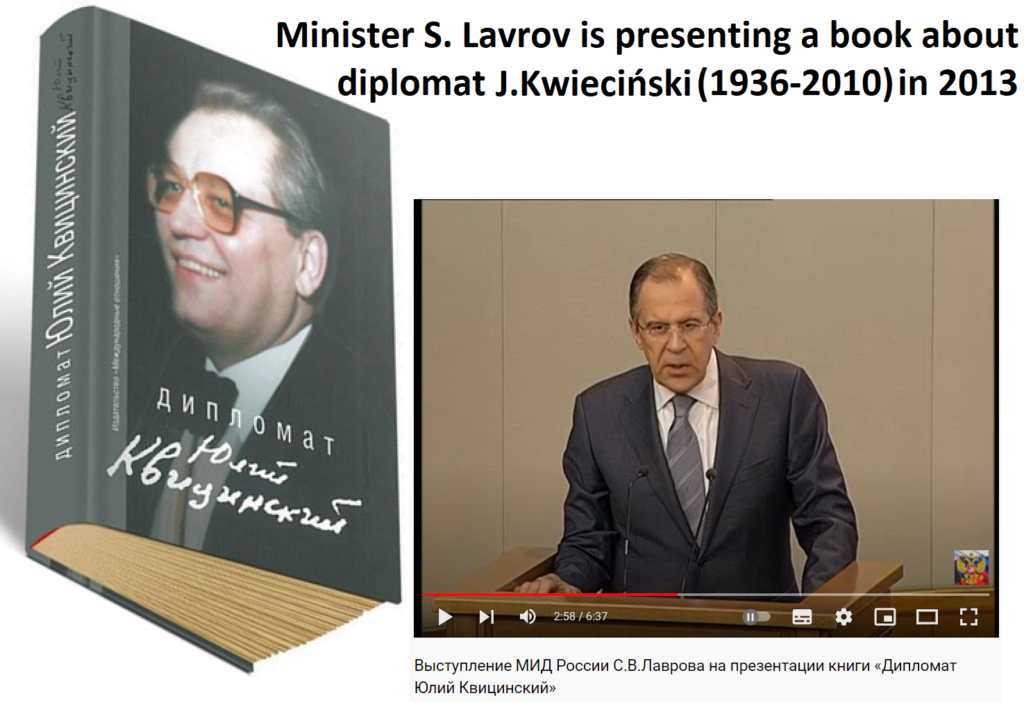
Falin and Kwieciński were similar in the way that both of them were unhappy Cold Warriors. But they were also very different. Falin loved Germany and worked there as a professor in Hamburg after the Soviet Union collapsed.
Kwieciński hated Germany, became a Communist Party MP in the 2000s, and advocated that Russia should stop offering itself as a friend to Germany.
Both Falin and Kwieciński were prominent alumni of MGIMO, the Moscow diplomacy institute for children of the elite. Minister Lavrov himself is a proud MGIMO alum. He even wrote a university anthem, although the lyrics sucked.
In the Soviet Union, the energy business was auxiliary to the power structure of the politicians and the military-industrial complex.
But in the modern Russia, the energy business became the raison d’être for the state, its military, and its other institutions while the military-industrial complex was demoted to auxiliary functions.
Well, economic reliance on extractives is a terrible thing for development in and of itself, even without the political perversion, because it doesn’t allow economic diversification.
Russia has all the hallmarks of the Dutch disease, as 70% of its exports are raw materials – gas and oil. That is, the economic forces push for divestment from other potentially productive sectors in order to invest in fossils.
Going back to the mutually-reinforcing drivers, in 2021, Russia saw the best GDP growth since 2008, posting a 4.7% growth rate. Oil and gas which account for a whopping 5% of the Russian $1.6tn GDP was the primary contributor to this growth. The graph below shows how oil market took a dip during the initial Covid lockdown and then surpassed the pre-Covid price by mid-2021. The Russian oil variety, the Urals, exhibited the same trend as the Brent and the WTI but was cheaper, as usual.

Natural gas price hike was also propelling the belief that the the Falin-Kwieciński Doctrine was working. Gas prices more than doubled by the end of 2021 in comparison to the pre-Covid level. Russia manipulated the European gas market throughout 2021 by restricting supply when the European demand was on the rise. Russia was filling its own gas storage facilities to the rims instead. The gas spike on the Asian market was a godsend for Russia because it masked these manipulations.

Raw materials are the main source of foreign currency in Russia. Last year alone, gas and oil exports brought the Kremlin more than $230 billion.
Taxes on energy resources have been filling 40% of the Russian federal budget (about $300 billion).
The largest importers of gas and oil are in the EU, which accounts for about half of all exports. Europe’s 43% of gas and 47% of oil comes from Russia. The EU is one of the world’s largest consumer markets. Russia’s advantage in the European market is a system of extensive pipelines that allows the Kremlin to increase and control the supply of resources.
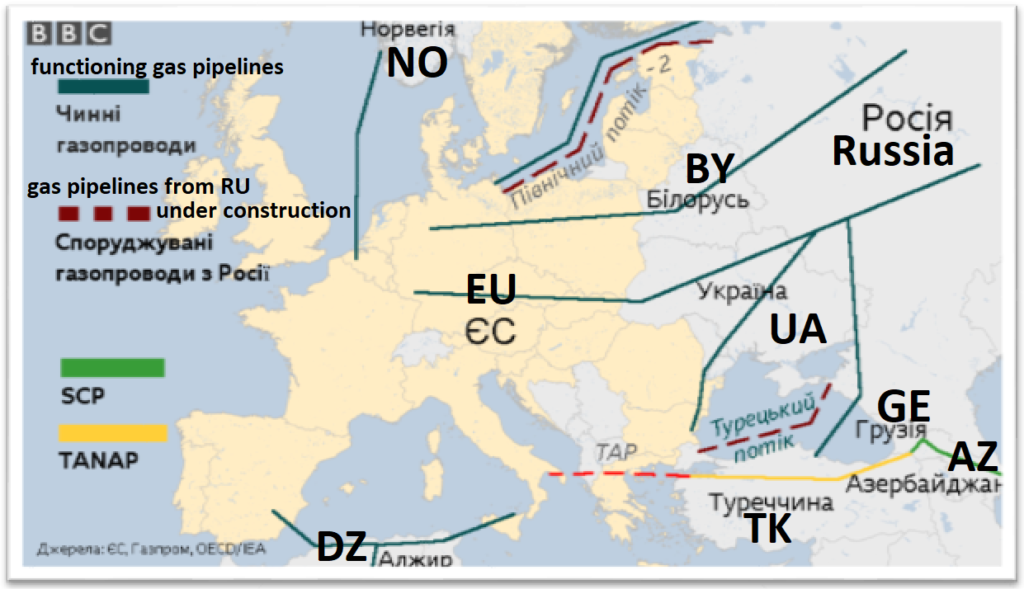
It’s not just about money
It is clear that each new pipeline increases the capacity and, consequently, the volume of supply. However, for Moscow, the transportation of gas and oil is not only a financial matter but also a political one.
A case in point is Ukraine. If the authorities in Kyiv came to power that did not satisfy Moscow, the Russians immediately played out a “gas crisis.” In fact, they were just shutting the valve.
One of the Russian Government’s demands to Ukraine was the sale of the Ukrainian section of the pipeline, as was done in Belarus. The aim was to deprive Kyiv of transit revenues and the opportunity to have any say in Moscow’s decisions. In general, the more pipelines Moscow has, the more could strategically manipulate with the routes of supply.
One idea was to build a South Stream pipeline, which was to cross the Black Sea from Russia to Bulgaria and further to Western Europe, bypassing Ukraine. However, its construction required the approval of Kyiv, as the stream was to run along the Crimean peninsula, where the underwater landscape allowed its construction.
Occupation of the Crimea
The annexation of the peninsula and the subsequent war on the Ukrainian Donbas automatically solved this problem, as they thought. Control over Crimea allows Russia to control the north of the Black Sea. This not only gives Russia the opportunity to send gas without the consent of Kyiv but also to seize the Black Sea shelf that has undeveloped natural gas deposits. And that’s what Russia did when it “nationalized” Ukrainian oil rigs in the region after invading Crimea in 2014.
On February 24, 2022, the first day of the Russian full-scale invasion, Russia captured on the Ukrainian Serpent Island. It doesn’t have any strategic importance but is located near large coastal-shelf deposits of oil and gas. Also, the coastal shelf itself has never had a full delimitation of territorial waters.
As for South Stream, its construction has been halted due to the international reaction to the Russian annexation of Crimea. But the Kremlin did not forgetting it. The former Russian President Dmitry Medvedev reminded everyone about it on February 21, 2022, when he noted that the pressure of sanctions on Russia has already passed successfully. Russia expects that the West will “forgive” the Crimean annexation, sooner or later, and then the issue of laying the pipeline will not take long.
The current full-scale Russian invasion was thought of as culminating in a “peace agreement” where Crimea is recognized by Ukraine as part of Russia. With this invasion, the Kremlin has simply raised its stakes, because its logic is, “if one wants something, demand even more.”
However, Ukraine is not the only one.
The war in Syria
Russia invaded Syria in 2015, formally to fight ISIS, but in fact to support the regime of its ally Bashir Assad. Syria is of strategic importance to Russia, as its control allows the Kremlin to block projects to build oil and gas pipelines from the Middle East to the EU through Turkey, including the Qatar-Turkey flow.
With a loyal and Russian-dependent Assad in power, Russia is effectively blocking the direct transit of Arab gas and oil, making transportation more expensive and making Russia’s energy resources more economically attractive in the marketplace.
At the same time, as in the case of Ukraine, Russia, with the permission of Damascus, began developing new oil and gas fields in the region. That is, in addition to the logistical advantage, Russian companies gain control over the production in the actually “occupied” territories.
Libya
Libya could be another country that could supply gas and oil to the EU. However, the country is currently embroiled in a civil war, with an internationally recognized government and Caliph Haftar’s rebel forces.
It was the latter who started the civil conflict with the support of Russia, which provides him with a variety of support: from military equipment to mercenaries, who took control of the region’s oil rigs. Thus, the destabilized country is withdrawn from the market while Russia seizes strategic resources.
And talking about the resources
Every war has the real reasons and the declared reasons for invasion. In the case of the invasion of Ukraine, Russia speaks of the threat of NATO enlargement, which forced the Russians to attack the neighboring country. However, on the fact that Russia has been waging war against Ukraine since 2014, and before the annexation of Crimea, Ukraine’s accession was not even on the agenda.
On the contrary, it was Russia’s aggression that led to NATO enlargement and the possible accession of Finland and Sweden. In addition, Russia shares borders with NATO in the Baltics (Lithuania, Latvia and Estonia). But there is no war there.
The real causes of war are almost always trivial – it’s resources. The only thing that in the case of Ukraine is not only about the resources themselves, but the creation of a “logistical advantage” and control over the European energy market.
However, the very idea of fighting for resources would not resonate with the Russian population. So, the war is impossible without consensus between its various sections of the population. That is why for years , the Russian propaganda has been creating a myth about Nazism in Ukraine that threatens Russia.
And yes, the less privileged Russians support the war because they see it as a “sacred mission” and the elimination of a threat. The tops are getting the cream because they are waging a war for resources to have more influence and income. Both layers are happy with the process. For now.
Conclusion
Ukraine disrupted the action plan that implements the Falin-Kwieciński Doctrine. But the war is long, and Russia is prepared.



